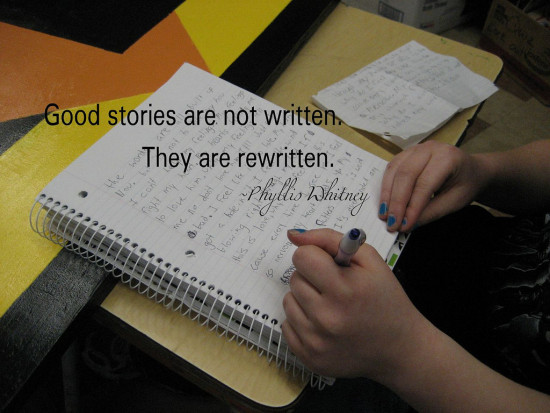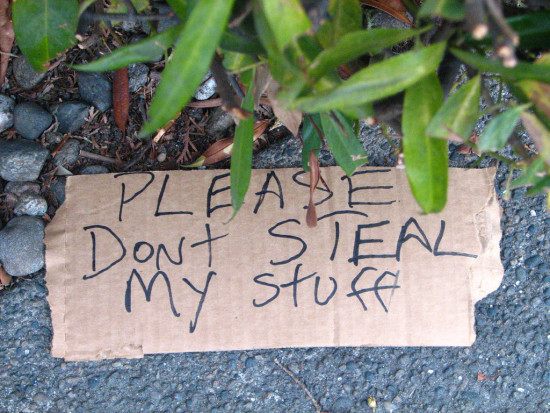Why You Should Avoid Writing for Content Mills
Many freelance writers work or have worked for a content mill at some point. Many have regretted the experience. Content mills are websites devoted to posting tons of articles on almost every subject imaginable (and some that aren’t, see number six, below). Quality standards vary and most pay very little for the work required. While some writers hope that content mills will help them break into freelancing or be a way to make some extra cash, both are unlikely. There are many good reasons to shun the mills. Here are some of the best:
Paltry pay
There are two issues with this. First, content mills pay pitiful rates, some as low as a penny per word. This means that a 700-word article would only net you $7.00. The federal minimum wage is higher than that. To make just $20,000 a year you’d have to write 2,857 articles. That’s nearly eight articles per day. Every day. No vacations or weekends. Even if you can crank out one per hour, that’s an eight-hour workday every single day of the year. And you’d still only make $20K. There are much better ways to make money.
Second, the low pay of content mills contributes to a growing problem for writers: The desire of content providers to get quality work for low pay. When other content providers see the mills paying such paltry rates they figure, “Hey, why should we offer more? The low pay model seems to be working for them.” It gets harder for writers to command the rates that they deserve when there are so many low paying markets out there having no trouble filling writing positions. Stick up for yourself and your worth and refuse to work for less than you legitimately deserve.
The mills stifle creativity and quality
Content mills are oriented toward one thing: Search Engine Optimization, or SEO. This means that your articles will be crammed with specific keywords that will try to bounce that article to the top of any search for those keywords. The problem is, it’s difficult to do this well and still produce a high quality, creative article. You’ll be churning out work that fits a very narrow set of requirements. There’s no room for your unique voice or any facts or issues that deviate from the narrow focus required by the mill.
You probably won’t gain any respect
Some writers believe that the mills are a way to “break in” and gain writing credits that can be parlayed into higher paying gigs. This is rarely the case. Because these pieces are rarely your best work (written quickly, skimpy on details, etc.), you may not even want to submit them as credits. And even if you do, most reputable, higher paying markets will not view them as quality credits. You may be able to get away with listing some content mill pieces in an otherwise robust portfolio of work, but as your sole credits those pieces will not gain you the respect you need to get ahead.
Hoop jumping
You’ll likely have to jump through a lot of hoops (submit an audition piece, articles have to go through an approval process before being accepted, there may be a probation period where you have to submit articles but you won’t get paid, etc.). You may play their game and go through all of their processes and still not get paid or hired on as a contributor. You’re probably better off writing for publications that have much clearer acceptance and employment processes.
Frustrating guidelines
Many content mills have a lot of guidelines for their writers, and some are not clear or are ever changing. For example, they may place limits on the sources you can use for research to keep you from using competing publications. However, you may not be provided with a list of banned sources until your turn in an article that includes one. Then your article gets rejected. You probably won’t work with one editor all the time, either, and each one may have a different set of expectations and standards. What is accepted by one may be denied by another, even within the same section of the website. Formatting may be another area where one segment of the site follows one set of rules while another follows something else. These formats may not be expressed clearly in the beginning leading to more rejected articles. Sometimes it can feel as if the mills are doing everything they can to make your job harder.
You may end up churning out ridiculous, nonsensical work
Content mills often come up with the title and then expect you to write the article to match. Since most of the sensible titles have been used, you get some strange titles that are largely just hot SEO keywords lumped together. They may make no sense at all and there may be no way to write an article that makes any sense. Writing about “Clay Aiken The Pokemon Earthquake” would be a stretch for even the most gifted writer.
You’re not building a network that you can draw upon later
When you’re writing for the mills, you’re not working with reputable professionals who can help you make contacts or navigate the publishing world. You’re not working with publishers, agents, and editors that garner respect in the writing world. They won’t make useful references or help you further your career.
You don’t care, and it shows
Writing for a content mill is about one thing: Generating a lot of words quickly. It doesn’t matter whether you care about the topic or not. It doesn’t matter whether you know anything beyond the basics or not. All that matters is the words. As a result, the articles show no passion and no depth. They read like what they are: Something rushed together without a care about the subject. If you want to be known as a writer who writes compelling, accurate, engaging, and informative pieces, a content mill is not for you.
You’re not learning anything
There are no professional editors helping you polish your work and teaching you how to become a better, more engaging writer. They may check for basic grammar and spelling errors, but that’s it. You’re not learning how to research or conduct interviews because you’re simply culling the most basic information off a list of pre-approved sources. You’re not learning how to market your work because the site is doing that for you. You’re not learning any of the skills that a professional writer needs to succeed. All you’re learning to do is write to a specific formula that is useless in any field other than the content mills.
The ratio of time to money is way off
You’ll spend the better part of a day churning out an article that might pay you $5. Even if you’re super fast at writing and researching, you’re still going to put in a lot of time for very little money. Time is the one resource you can’t get back. It’s generally better to spend your time working on things that will grow your “brand” as a writer and lead to better paying work. Work on your own website/blog that you can monetize, pitch articles to well-paying publications and sites, seek out corporate clients, work on that novel, or get that non-fiction book proposal together. Sure, not everything you try will lead to big bucks, but if you’re only going to earn pennies anyway, it might as well be in the service of something that you can build on and control rather than a content mill that is taking your labor and giving you nothing in return.
The mills are like quicksand
It’s too easy to get sucked in. You start out just trying to bridge the gap so you can make rent this month or put aside a little fun money. Before you know it, though, you’re working day and night for the mills because you need the income. You think you’re making some sort of progress in your career, but all you’re really doing is wasting time that could be better spent putting together higher quality gigs. You can’t get out because you need the money, but the mill is sucking up all of your time that you could use to look for better work. It becomes a vicious circle.
Opportunity rarely knocks
When you write for reliable, reputable publications and websites you’ll probably be surprised at the opportunities that surface. People see your work and ask you to write for them, or ask if they can obtain the rights to publish your piece elsewhere. This doesn’t happen with the mills. People may see your work, but they aren’t likely to care.
You have no protection or control
If the content mill folds, you’re out of work and you likely won’t be paid for any outstanding work. They can terminate your account at any time and for any reason. They can refuse your article for any reason and not pay you. As a professional freelancer, you should have more protection than this. Most legitimate freelance projects come with contracts that cover what happens in the event your article is rejected or needs more work, the editors/owners change, etc. There is more protection for you than you’ll ever get with the mills.
The only reason to write for a content mill is if you really enjoy the process or you’re just killing time and want a little extra cash. That might make all of the other hassles worth it. If you’re looking to advance your career, however, the mills are largely a waste of your time. There are far better ways to make money, improve your writing, and build your writing “brand.” Spend your time wisely by seeking out legitimate clients and working with true industry professionals. The mills will simply take your time and give you little in return.
(Photo courtesy of Johann Dreo)










